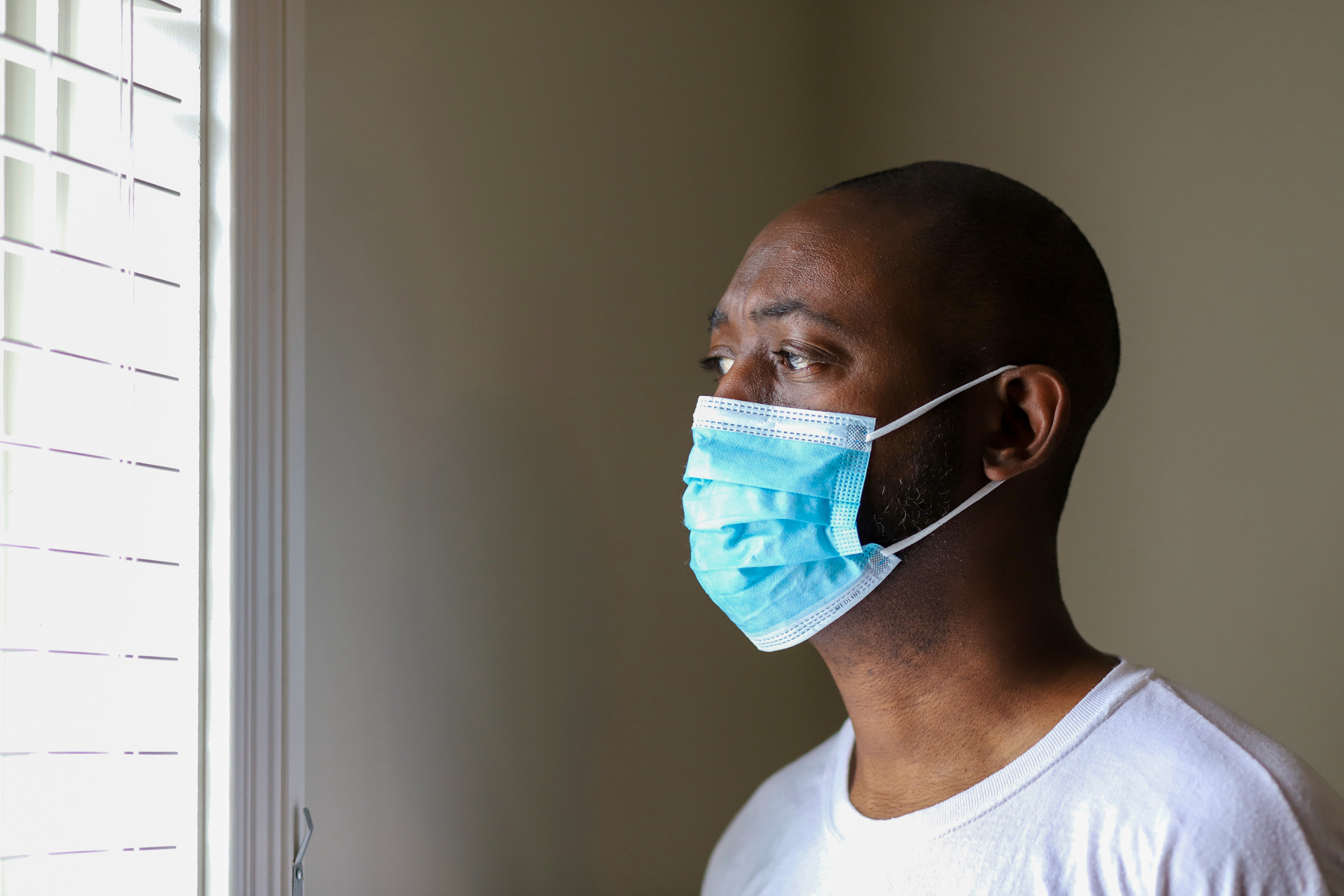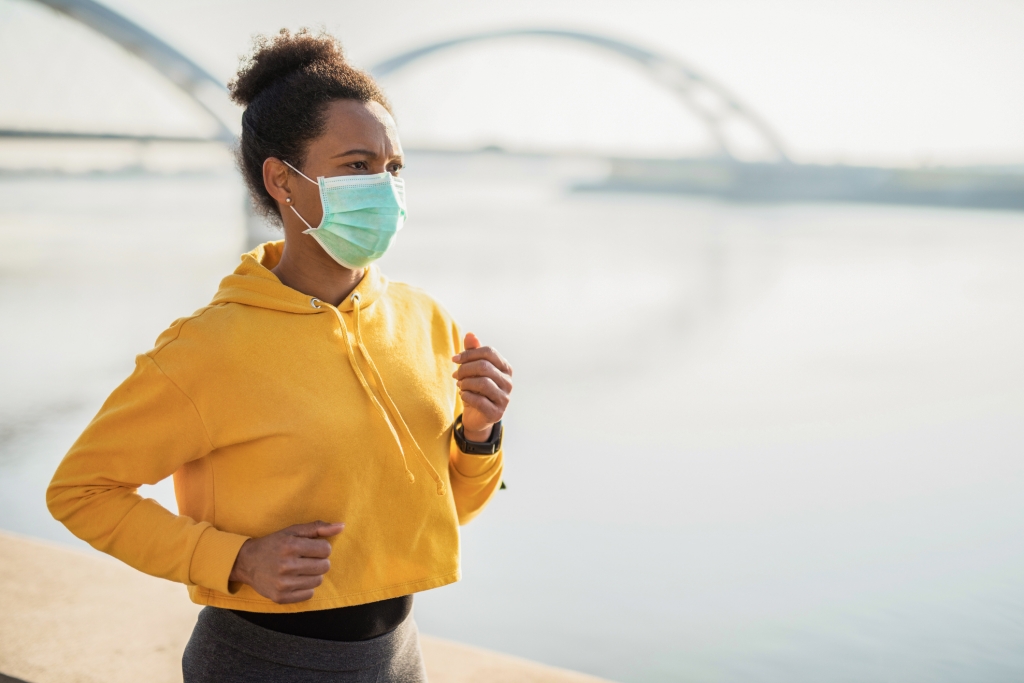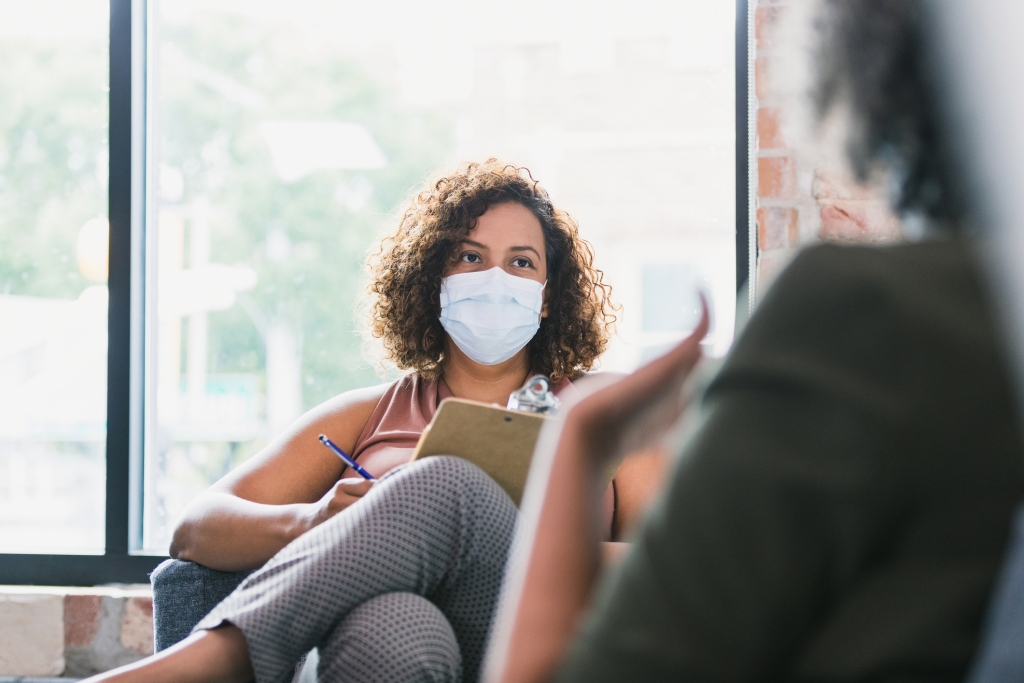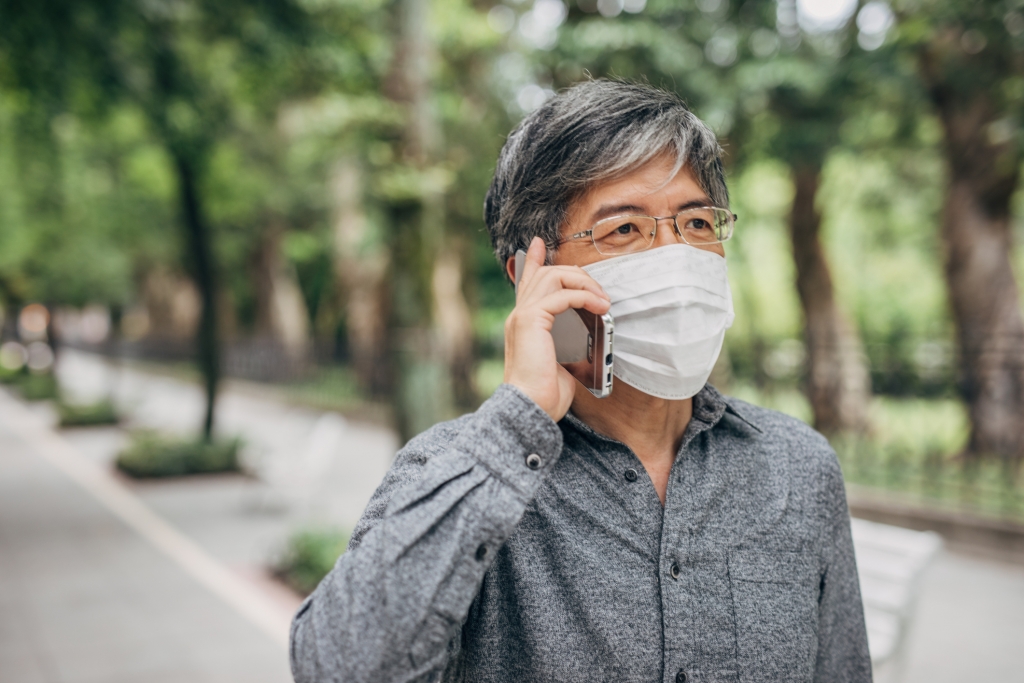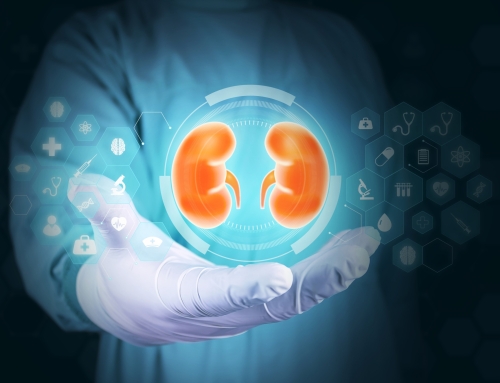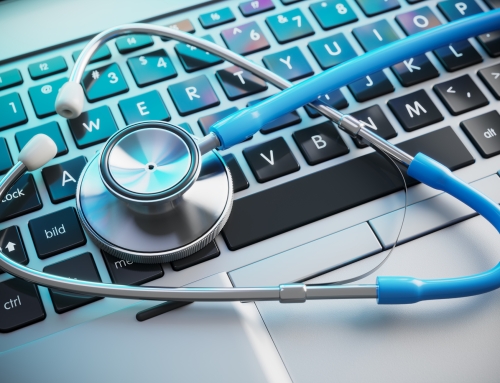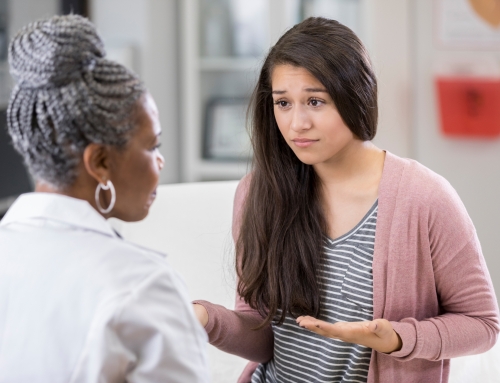By Elizabeth Steinberg Christofferson, PhD
An increasingly vital aspect of the COVID-19 pandemic is how the pandemic impacts our mental health, overall well-being, and how we cope with the pandemic, especially as it continues on for a longer period than we may have anticipated or hoped. This article provides psychoeducation on the connection between stress, chronic illness, and COVID-19, tips for managing anxiety related to these stressors, and resources for further support.
Stress During COVID-19 and Symptoms to Look Out for
COVID-19 adds to already present stress that impacts patients and families on many levels in terms of their medical and physical health, emotional and mental health, family, school, and social lives. Having a chronic illness may mean that you have a higher risk of complications, or that you are required to visit the hospital for dialysis or frequent laboratory tests or doctor appointments. Attending to hospital appointments or tests make social distancing concerns more difficult, and there are additional questions about safety during this time. Further, the rapid and acute onset of the pandemic has led to anxiety and trauma among many people, due to the needs for social distancing, changes in day-to-day functions and routines, financial difficulties and job loss, physical isolation, increased virtual interactions, and increased time at home. Some have conceptualized this anxiety also as grief, in the sense of anticipatory grief and collective grief that we are all experiencing. We know the stages of grief (denial, anger, bargaining, sadness, and acceptance) are not linear, but that acceptance of what we can control and what we can’t control is a goal. Insight into our level of stress and anxiety is critical at this time. With noticing symptoms of anxiety or depression, you will be more able to utilize intervention strategies.
Symptoms of stress to notice in yourself or loved ones include: mood fluctuations, feeling exhausted, sleep and appetite changes, and increased use of substances (alcohol, tobacco, other substances), and worsening of pre-existing mental and physical health conditions. Mental health is just as important as our physical health in terms of the pandemic. While the average reported stress for U.S. adults in 2019 was 4.9 on a 10-point scale, it was 5.9 when measured in 2020 during the height of the pandemic (Harris Poll, APA, 2020). A Kaiser Family Foundation Poll in mid-July 2020 found that 53% of people reported that their mental health has been negatively impacted due to worry and stress over COVID-19. This poll also reported that many adults were experiencing specific symptoms of mental health concerns, including difficulty sleeping (36%) or eating (32%), increases in substance/alcohol use (12%), and worsening chronic conditions (12%) due to stress and worry about the pandemic. Finally, during late June 2020, 40% of adults in the U.S. reported struggling with mental health or substance use, including 11% of adults seriously considering suicide (CDC, 2020). These symptoms and concerns are startling.
Anxieties of People with Chronic Illnesses During COVID-19
Further, people with chronic illness tend to have heightened concerns during the COVID-19 pandemic, for a variety of reasons. A study Global Healthy Living Foundation surveyed over 350 immunocompromised patients and found that high-risk patients have prepared for self-quarantine, but are less likely to ask for help, such as with grocery shopping or getting other essential supplies from other people. They may desire more information from their healthcare providers and may feel frustrated when people do not follow social distancing or mask guidelines in public. While anxiety is adaptive in terms of protecting people who have chronic health conditions, it can also spiral out of control and become harmful. Anxiety can even impact physical health, exacerbate physical symptoms, and cause pain, headaches, and other somatic symptoms. Anxiety activates our fight or flight system, which is not a healthy state to remain in constantly during our day-to-day lives. We want to reduce this stress and this “fire alarm” of anxiety.
Tips for People with Kidney Disease During COVID-19
The following tips are helpful reminders for people with Chronic Kidney Disease, on dialysis, or who have received kidney transplants:
- Do not skip your dialysis treatment.
- Contact your dialysis center if you are sick or have concerns.
- Have enough food on hand to follow your renal diet and the Kidney Community Emergency Response (KCER) 3-Day Emergency Diet Plan.
- Follow public health guidance, like social distancing and wearing masks at all times in public:
- Stay at least 6 feet (2 arms lengths) away from people outside the home.
- Isolate at home if you are in contact with someone or someone in your house is sick.
- Inform your healthcare provider if you become sick or are in contact with someone who is sick.
- Avoid large gatherings or crowded spaces indoors where you’ll be in close contact with others
- Have enough groceries, household supplies and prescription medication on-hand so that you can comfortably stay home for a few weeks if needed.
- Consider online ordering and delivery, which could help you avoid having to go out.
- Have your prescription medications filled:
- Check to see if your insurance allows for a 90-day supply of prescription medication rather than a 30-day supply during this pandemic.
- Refill your prescriptions in advance each time—do not wait until the day before to refill.
- Ask your healthcare provider or pharmacy about ordering prescription medications online and having them mailed to your home, use a pharmacy drive-thru or ask a caregiver to pick up your medication.
- Practice the following when outside the home:
- Avoid going out for food or medicine during peak hours and keep 6 feet of distance between yourself and others.
- Avoid touching your face (i.e., eyes, nose and mouth) because this is how germs get into your body.
- Avoid high-traffic surfaces in public places (i.e., elevator buttons, door handles, shopping cart handles).
- Use your elbow, a tissue, or your sleeve to cover your hand if you must touch these surfaces.
- Wear a face covering/mask in public, especially in places where it’s hard to maintain at least 6 feet of distance between yourself and another person.
- Disinfect, sanitize, and wash your hands often:
- Wash your hands using soap and water for at least 20 seconds, especially after you’ve been in a public place.
- Clean your hands with an alcohol-based hand sanitizer that contains at least 60% alcohol if soap and water are unavailable.
- Clean and disinfect high-touch surfaces and common areas in your household (i.e., tables, doorknobs, light switches, phone, computer, remote controls, faucet handles, toilets) on a regular basis.
- Make sure others in your household or anyone you are regularly in close contact with follow these same precautions.
- Maintain health habits:
- Keep taking your daily medications and/or vitamins as prescribed.
- Do not stop taking your immunosuppressing medications unless your healthcare provider advises you to do so—just as there is risk associated with having a com- promised immune system, there is also risk associated with stopping medication
- Continue your regular treatment plan. Don’t stop any medications or treatments without talking to your doctor.
- Discuss any concerns about your treatment with your doctor.
- Keep your regularly scheduled medical appointments.
- Talk to your doctor about steps they are taking to reduce risk of exposure to COVID-19 in the office.
- Use telehealth services whenever possible if recommended by your doctor.
- Ensure that you are getting necessary tests prescribed by your doctor.
- Seek urgent medical care if you are feeling unwell.
- Manage stress, eat a healthy diet and exercise (more on these below).
Tips for Mental Health and Wellbeing During COVID-19
- FACE COVID: Click this link and watch this informative and helpful animation by Dr. Russ Harris, author of The Happiness Trap, for tips on mindfulness to manage anxiety and focus on what is in your control (Harris, 2020).
- Remind yourself what you are already doing to remain healthy and how you already have skills to maintain your health and prevent infection.
- Limit Media/News/Screen Time—monitor your news and media consumption, as well as screen time:
- Stay informed but use trustworthy news/media sources. Pick just two and limit to 15-30 minutes of news per day.
- Turn off news alerts on your devices. Limit social media use.
- Screen time may be increased now due to increased social connection through screens. Which screen activities (e.g., Zoom/Facetime with family/friends, virtual learning, work meetings/activities, social media, news, other?) make you feel good and are necessary, and which cause more anxiety? Take breaks and limit those that are less helpful or need to be regulated in terms of time.
- Sleep Hygiene:
- Maintain a daily routine, which helps to maintaining our circadian rhythms and can increase our immunity.
- Keep a regular schedule for sleep time, mealtimes, daylight exposure, exercise, and stress management.
- Get up at the same time every day, even on weekends.
- Aim for 7-9 hours of sleep for adults and 9-12 hours of sleep for teens.
- Discontinue electronics and screens at least 1 hour before bed.
- Set up a quiet, dark, relaxing bedroom at a comfortable temperature.
- Monitor caffeine use, avoid alcohol and large meals before bed, follow healthy eating and stay hydrated with water.
- Maintain daily physical exercise.
- Use relaxation tools.
- Get dressed during the day—cue to start the day.
- Mindfulness and relaxation techniques:
- Anxiety creates tension on our bodies and our muscles.
- Mindfulness or relaxation techniques help us pay attention to what is happening right here, right now in the present, rather than our mind racing and thinking about the past or future.
- There is evidence that mindfulness helps us regulate our emotional reactions.
- Utilize guided meditation for deep breathing, guided imagery and progressive muscle relaxation exercises.
- Try to incorporate these practices at least once per day (at bedtime, when stressed or experiencing pain, or just as a quick break).
- Apps for meditation and relaxation:
- Insight Timer
- Breathe 2 Relax
- Stop, Breathe, and Think
- Healthy Minds Program
- Headspace
- Calm
- Exercise, take a walk outside:
- Apps:
- Asana Revel: yoga-inspired
- Nike Training Club
- FitOn
- Les Mills On Demand
- Dance, sing, run, yoga, bike, etc.
- Don’t sit for more than an hour—physiological breaks for the body
- Apps:
- Watch a movie, cook, do arts and crafts, clean, maintain rituals such as coffee tea, faith-based activities, self-care in whatever way is helpful for you
- Take advantage of your alone time to re-focus and calm yourself
- Do something active with your hands, which can be soothing and reduce anxiety:
- Knitting, sewing, quilting, fixing things, chopping for cooking, drawing/painting/coloring, painting nails
- Make lists
- Support for parents:
- Practice compassion within your parenting
- Promote a schedule for the family, including school, chores, screen time, leisure time, alone time, family time
- Practice coping strategies together—exercise, mindfulness/meditation/relaxation/deep breathing
- Play board games, cook together, virtual museum tour/travel, arts and crafts, science experiments, gardening, movies, home organization
- And remember, it’s ok to not have a schedule sometimes too!
- Social Support
- Virtual connection-text, video call, Zoom, email, phone
- Physically distanced outdoor connection
- Gratitude and Positive Psychology
- 3 Good Things: Every day for 7 days, write down or think of 3 good things that happened that day and your role in bringing them about
- This is shown to increase happiness and decrease depression symptoms
- Random acts of kindness—promotes well-being in the person doing the act of kindness even more than the receiver’s well-being
- Giving back to your community, being a helper
- Values clarification—define values and embrace within work, relationships, and leisure
- It is best when your values overlap across domains—this is protective against burnout
- 3 Good Things: Every day for 7 days, write down or think of 3 good things that happened that day and your role in bringing them about
- Create a plan for your health:
- Create a script for how to respond to social invitations: how to tell someone they shouldn’t come over if they have illness symptoms, discussing telecommuting to work with your manager, etc.
Seek Help if You Need it
Finally, if you find that the following symptoms are present for you, it is important to seek help. Also, check in with your loved ones about how they’re doing in terms of these symptoms as well.
- Your worries and anxiety are interfering with daily life (work, school, engaging in social behaviors)
- You have trouble sleeping
- You are living too much in your head (not enjoying daily life, not able to focus)
- You find yourself running worst-case scenarios—“I’ll get sick and then this will happen and that will happen”—and you have difficulty stopping or distracting yourself from these worries and thoughts
- You are obsessively paying attention to the media (you’re repeatedly refreshing your browser or constantly watching the news)
- You are isolating yourself (not just social distancing to avoid germ exposure, but avoiding even digital or phone contact with loved ones)
Additional Resources
Please utilize the following helpful resources for mental health and wellbeing:
- Your social worker or psychologist through your dialysis center/medical center
- Referrals for mental health providers—ask your medical team, look on Psychology Today—telehealth allows for virtual therapy sessions, call your insurance company
- Crisis Chat: 1-800-273-TALK (8255) or text MHA to 741741
- Crisis Text Line: Text HOME to 741741 for free, confidential crisis counseling 24/7
- IMAlive: online chat service at org
- National Alliance on Mental Illness (NAMI): 1-800-950-NAMI (6264)
- Many additional resources on:
Finally, try a 1-3 minute deep breathing exercise—go ahead, try it right now—through an app, YouTube, or just on your own, and notice how much more relaxed you feel after this practice!
Dr. Elizabeth Christofferson is an assistant professor in the Departments of Psychiatry and Pediatrics at the University of Colorado School of Medicine and a licensed clinical psychologist at Children’s Hospital Colorado. She is the clinical director for psychology for the Solid Organ Transplant Teams in the Kidney Center at CHCO.

